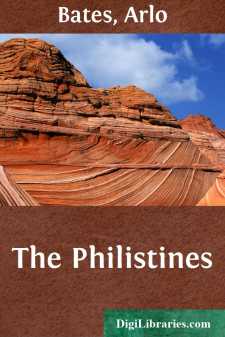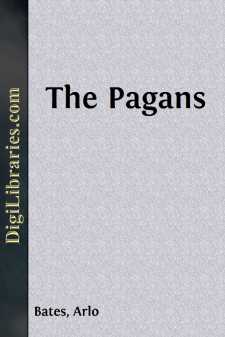Categories
- Antiques & Collectibles 13
- Architecture 36
- Art 48
- Bibles 22
- Biography & Autobiography 813
- Body, Mind & Spirit 142
- Business & Economics 28
- Children's Books 15
- Children's Fiction 12
- Computers 4
- Cooking 94
- Crafts & Hobbies 4
- Drama 346
- Education 46
- Family & Relationships 57
- Fiction 11828
- Games 19
- Gardening 17
- Health & Fitness 34
- History 1377
- House & Home 1
- Humor 147
- Juvenile Fiction 1873
- Juvenile Nonfiction 202
- Language Arts & Disciplines 88
- Law 16
- Literary Collections 686
- Literary Criticism 179
- Mathematics 13
- Medical 41
- Music 40
- Nature 179
- Non-Classifiable 1768
- Performing Arts 7
- Periodicals 1453
- Philosophy 64
- Photography 2
- Poetry 896
- Political Science 203
- Psychology 42
- Reference 154
- Religion 513
- Science 126
- Self-Help 84
- Social Science 81
- Sports & Recreation 34
- Study Aids 3
- Technology & Engineering 59
- Transportation 23
- Travel 463
- True Crime 29
The Philistines
by: Arlo Bates
Description:
Excerpt
I
IN PLACE AND IN ACCOUNT NOTHING.
I Henry IV.; v.—I.
When Arthur Fenton, the most outspoken of all that band of protesting spirits who had been so well known in artistic Boston as the Pagans, married Edith Caldwell, there had been in his mind a purpose, secret but well defined, to turn to his own account his wife's connection with the Philistine art patrons of the town. Miss Caldwell was a niece of Peter Calvin, a wealthy and well-meaning man against whom but two grave charges could be made,—that he supposed the growth of art in this country to depend largely upon his patronage, and that he could never be persuaded not to take himself seriously. Mr. Calvin was regarded by Philistine circles in Boston as a sort of re-incarnation of Apollo, clothed upon with modern enlightenment, and properly arrayed in respectable raiment. Had it been pointed out that to make this theory probable it was necessary to conceive of the god as having undergone mentally much the same metamorphosis as that which had transformed his flowing vestments into trousers, his admirers would have received the remark as highly complimentary to Mr. Peter Calvin. To assume identity between their idol and Apollo would be immensely flattering to the son of Latona.
Fenton understood perfectly the weight and extent of Calvin's influence, yet, in determining to profit by it, he did not in the least deceive himself as to the nature of his own course.
"Honesty," he afterward confessed to his friend Helen Greyson, who scorned him for the admission, "is doubtless a charming thing for digestive purposes, but it is a luxury too expensive for me. The gods in this country bid for shams, and shams I purpose giving them."
So well did he carry out his intention, that in a few years he came to be the fashionable portrait-painter of the town; the artist to whom people went who rated the worth of a picture by the amount they were required to pay for it, and the reputation of the painter in conventional circles; the man to whom a Boston society woman inevitably turned when she wished the likeness of her charms preserved on canvas, and when no foreigner was for the moment in vogue and on hand.
The steps by which Fenton attained to this proud eminence were obvious enough. In the first place, he persuaded Mr. Calvin to sit to him. Mr. Calvin always sat to the portrait painters whom he endorsed. This was a sort of official recognition, and the results, as seen in the needlessly numerous likenesses of the gentleman which adorned his Beacon Hill mansion, would have afforded a cynic some amusement, and not a little food for reflection. Once launched under distinguished patronage, Fenton was clever enough to make his way. He really was able to paint well when he chose, a fact which was, on the whole, of less importance in his artistic career than were the adroitness of his address, and his ready and persuasive sympathy....





